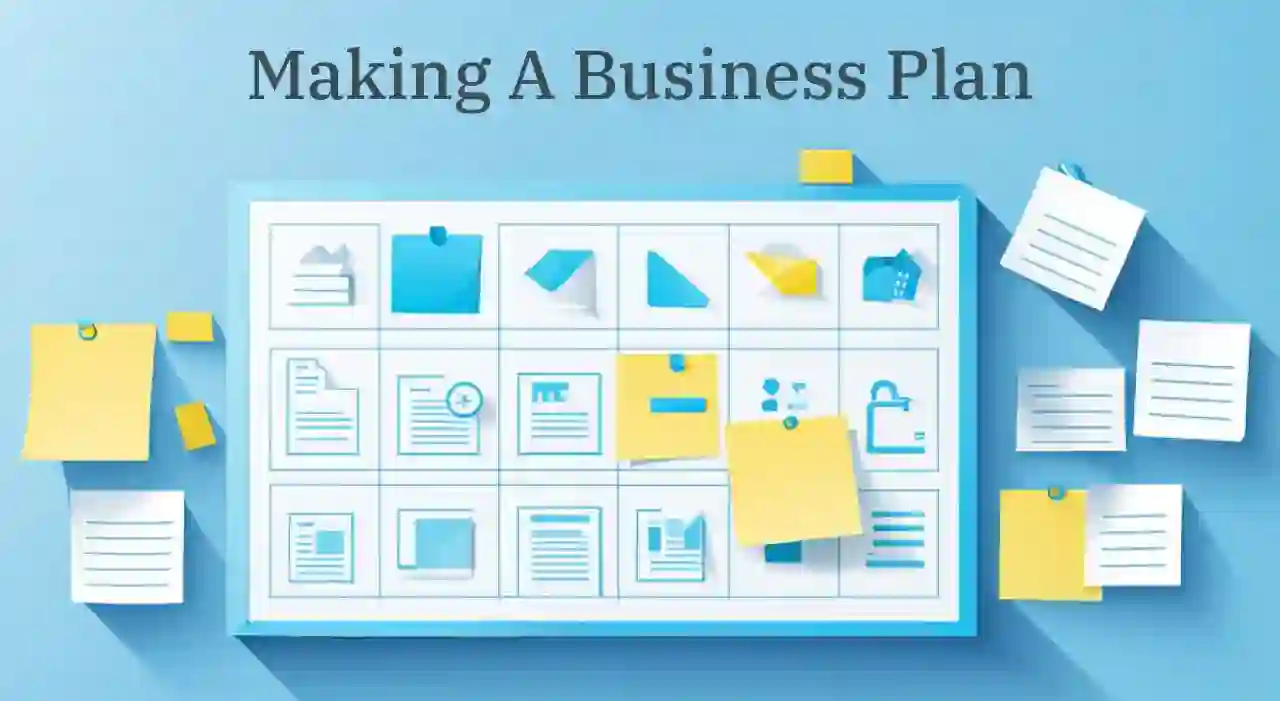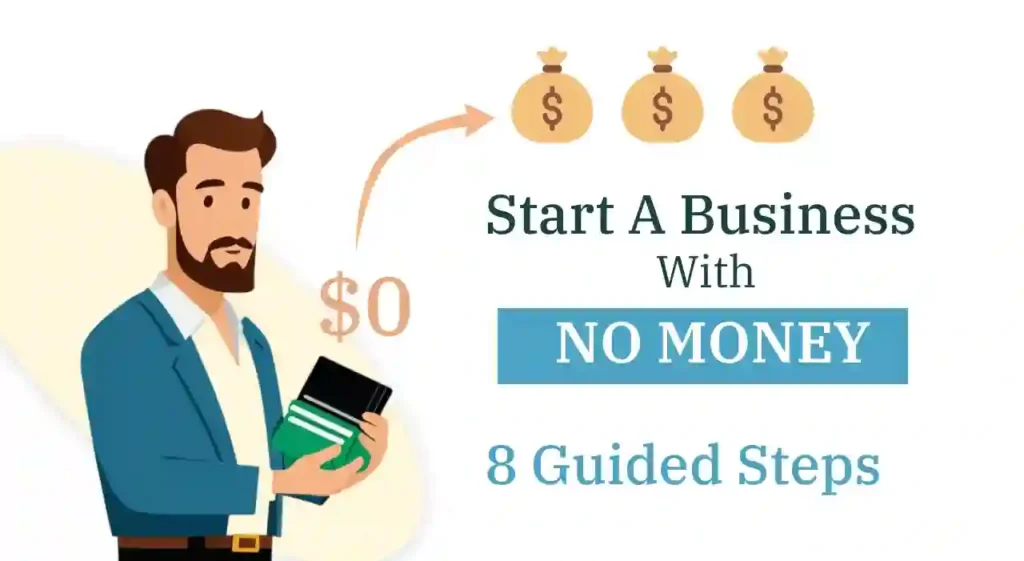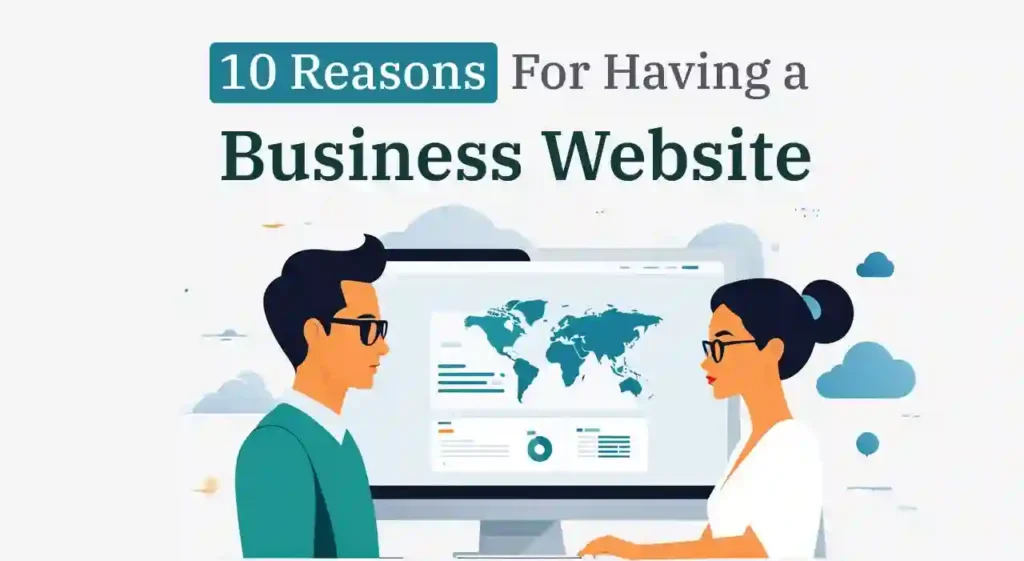
Start Business in 8 Easy Steps
Starting a business with no ideas or money is possible with passion, creativity, and resourcefulness. This guide helps you find inspiration, conduct market research, leverage low-cost resources, and build a solid business plan. Take small steps, seek feedback, and continuously adapt to succeed.
Do you often think: “I want to start a business but have no ideas and money”. Are you eager to start your journey into the world of business but feeling stuck because you lack both a solid idea and the funds to get started?
You’re not alone. Many of us have been right where you are, filled with ambition but unsure of how to turn it into reality without a clear direction or a hefty bankroll.
Starting a business with no ideas or money might seem daunting, but it’s entirely possible—and incredibly exciting. So, if you’re have passion and determination, know that you’re already halfway there.
In this comprehensive guide, we’ll walk you through the exhilarating process of transforming your entrepreneurial dreams into a thriving business, even if you’re starting from scratch.
We’ve got you covered at every step, from finding inspiration in surprising places to developing a strong business plan and exploring innovative funding options. Learn how to start a business without any money or ideas.
I want to Start a Business but Have No Ideas
Table of Contents
The challenge of Starting a Business With no Ideas
Imagine this: you’re eager to start your own business, create something new, and leave a lasting impact. However, you’re struggling to come up with a specific idea.
To begin with, I want to reassure you that you are not alone on this path. Numerous accomplished business owners began with just a deep desire to build something, but they didn’t allow that to hold them back. Instead, they used that doubt as motivation for their journey.
There is only one thing that makes a dream impossible to achieve: the fear of failure.
― Paulo Coelho, The Alchemist
starting without a clear idea could be a good thing. It allows you to be creative, try new things, and let your imagination soar. It’s like being at a huge playground with endless options in front of you.
So, rather than seeing it as a roadblock, think of it as an exciting challenge—a chance to uncover hidden passions, untapped markets, and innovative solutions.
Maybe you’ve always had a passion for problem-solving, a love for technology, or a deep-seated desire to make the world a better place. Whatever it is, trust that your unique perspective and experiences hold the key to unlocking your entrepreneurial journey.
And here’s the best part: you don’t need a big pile of cash or a fully-formed idea to get started. All you need is that burning desire, a willingness to explore, and a dash of courage to take that first leap into the unknown.
Importance of Passion, Creativity and Resourcefulness in Business
let’s dive into the importance of passion, creativity, and resourcefulness in entrepreneurship.
These three ingredients are like the secret sauce that can turn a vague desire to start a business with no ideas and money into a recipe for success.

A. Passion:
- Passion is the driving force behind entrepreneurship. It motivates you to face challenges and grab opportunities every day.
- When you’re passionate about something, whether it’s solving a problem, pursuing a hobby, or making a difference in the world, that energy and enthusiasm are contagious. It draws people to you, inspires trust and loyalty, and fuels your drive to succeed, even when the going gets tough.
B. Creativity:
- Creativity is a powerful tool in entrepreneurship. It helps you stand out, innovate, and adjust to changes in the business world.
- Whether it’s coming up with a new product idea, finding innovative ways to market your business, or solving unexpected challenges, creativity is your secret weapon for turning obstacles into opportunities and dreams into reality.
C. Resourcefulness:
- Last but not least, we have resourcefulness. This is all about making the most of what you have, whether it’s time, money, skills, or connections. It’s about thinking outside the box, finding creative solutions to problems, and leveraging your resources in unexpected ways.
- In the world of entrepreneurship, resourcefulness is often the difference between success and failure. It’s what allows you to bootstrap your way to success, to turn limitations into strengths, and to navigate the ups and downs of building a business with grace and resilience.
So, if you’re thinking to start a business with no money but feel like you’re lacking in the idea or money department, don’t fret.
Focus on what you do have—your passion, your creativity, and your resourcefulness.
Finding Inspiration
A. Exploring various industries and niches.
Alright, let’s dive into finding inspiration by exploring various industries and niches. This is where the fun really begins!
- Explore Different Options: When beginning with a clean slate, it’s important to explore various industries and niches. Don’t restrict yourself to what you know or what’s popular now. Instead, be curious and let your creativity run wild.
- Follow Your Passions: One of the best places to start is by tapping into your own passions and interests. What gets you excited? What problems do you find yourself itching to solve? By aligning your business idea with your passions, you’ll not only stay motivated but also increase your chances of success.
- Think Outside the Box: Don’t be afraid to think outside the box and explore unconventional industries or niche markets. Sometimes, the most innovative business ideas come from combining seemingly unrelated concepts or addressing overlooked needs in niche markets.
- Research and Learn: Take the time to research different industries and niches thoroughly. Dive deep into market trends, consumer behavior, and competitor analysis. Look for gaps in the market, underserved customer segments, or emerging trends that present opportunities for innovation.
- Seek Inspiration Everywhere: Inspiration can strike at any moment, so be open to finding it in unexpected places. Keep your eyes and ears open, whether you’re browsing the internet, reading a book, or having a conversation with a friend. You never know when a casual observation or a chance encounter might spark the next big idea.
B. Utilizing online resources, such as trend reports and market analysis
Let’s explore how to utilize online resources like trend reports and market analysis to find inspiration for your business journey:
- Tap Into Trend Reports: Trend reports are like treasure maps for entrepreneurs, highlighting emerging trends and consumer preferences across various industries. Websites like Trend Hunter, Think with Google, and TrendWatching offer valuable insights into what’s hot and what’s not in the world of business. By keeping an eye on these reports, you can identify new opportunities and stay ahead of the curve.
- Conduct Market Analysis: Market analysis involves studying your target market, understanding consumer behavior, and analyzing competitor strategies. Online tools like Google Trends, SEMrush, and SimilarWeb provide invaluable data and insights that can help you identify market gaps, assess demand for your product or service, and refine your business strategy accordingly.
- Explore Social Media and Forums: When you are starting a business with no ideas and money, Social media is a great resource. Social media platforms like Twitter, Facebook, and LinkedIn, as well as online forums like Reddit and Quora, are goldmines of information and inspiration.
Engage with communities relevant to your industry or niche, participate in discussions, and pay attention to the questions, challenges, and trends being discussed. You’ll often find valuable insights and ideas that can spark your next business venture. - Attend Webinars and Online Workshops: Many organizations and industry experts host webinars, workshops, and online events covering a wide range of topics related to entrepreneurship and business trends. Take advantage of these resources to expand your knowledge, connect with like-minded individuals, and gain fresh perspectives that can inspire your entrepreneurial journey.
C. Looking into personal passions and interests
Personal passions and interests are very important when it comes to start a business.
“Your work is going to fill a large part of your life, and the only way to be truly satisfied is to do what you believe is great work. And the only way to do great work is to love what you do.”
― Steve Jobs, Co-Founder, Chairman and CEO, Apple
- Follow Your Heart: Your passions and interests are like compasses guiding you towards your true calling in the business world. Whether it’s a hobby you love, a cause you’re passionate about, or a problem you’re itching to solve, tapping into what truly excites you is the first step towards starting a business with no money that lights up your soul.
- Identify Your Strengths: Take a moment to reflect on your skills, talents, and experiences. What are you naturally good at? What sets you apart from others? By aligning your business idea with your strengths and passions, you’ll not only enjoy the journey more but also increase your chances of success.
- Think Outside the Box: Don’t be afraid to think outside the box and explore unconventional business ideas that resonate with your personal interests. Whether it’s turning your love for pets into a pet-sitting service or leveraging your passion for sustainability to create an eco-friendly product, the possibilities are endless when you let your imagination run wild.
By looking into your personal passions and interests, you’ll not only find inspiration for your business but also infuse it with meaning and purpose.
Market Research and Validation

A. Understanding target demographics and consumer needs.
Market research and validation are like the Sherlock Holmes of entrepreneurship—they help you uncover clues about your target audience and their needs, ensuring that your business idea hits the bullseye.
By understanding your demographics and consumer needs, you’re not just shooting in the dark; you’re taking aim with precision and purpose.
Related Article: Zoho Case Study: How it became Indian most profitable Startup
Whether it’s conducting surveys, analyzing competitor strategies, or simply having conversations with potential customers, diving deep into the minds of your audience is essential.
After all, you can’t hit a target you can’t see. So, if you think to start a business but don’t have a clear idea yet, don’t skip this crucial step. It might just be the key to unlocking your entrepreneurial success, even with no money and no concrete plans.
B. Conducting surveys, interviews, and focus groups.
When it comes to market research and validation, surveys, interviews, and focus groups are your secret weapons. These tools allow you to get inside the minds of your potential customers, uncovering valuable insights that can shape your business strategy.
Whether you’re sending out online surveys, chatting one-on-one with individuals, or gathering a group for a focused discussion, these methods help you gather feedback, understand pain points, and identify unmet needs.
It’s like having a crystal ball that reveals exactly what your customers want and need, guiding you towards success even when you’re starting with no money and no concrete ideas.
C. Analyzing competitors and identifying gaps in the market.
Ah, let’s talk about being a detective in the world of entrepreneurship—analyzing competitors and identifying gaps in the market.
By studying your competitors, you can uncover valuable insights into what’s working, what’s not, and where the opportunities lie.
Look for areas where competitors are falling short or neglecting to address customer needs. These gaps in the market present golden opportunities for you to swoop in and offer a solution that fills the void.
Leveraging Resources
A. Exploring low-cost and no-cost business ideas.
Let’s talk about the magic of leveraging resources, especially when you’re starting a business with no ideas.
It’s like turning pennies into gold by tapping into your creativity and resourcefulness.
First off, explore low-cost and no-cost business ideas that allow you to hit the ground running without breaking the bank. For instance, if you’re excellent at writing, consider starting a freelance writing business from the comfort of your own home.
Or, if you have a passion for crafting, why not sell your handmade creations on platforms like Etsy?
The key is to think outside the box and find ways to monetize your skills and passions without requiring a hefty investment upfront.
If You are going to start a business as College Student, then here is are 30 practical side hustles for you to start today.
By leveraging your existing resources and embracing a bootstrapping mentality, you can turn your dreams into reality, even when you’re starting with no money and no concrete ideas.
B. Seeking mentorship and guidance from experienced entrepreneurs.
Getting mentorship and guidance from seasoned entrepreneurs is akin to having a knowledgeable companion who leads you through the ups and downs of the entrepreneurial path.
Whether you’re just starting out or facing a roadblock along the way, having someone who’s been there, done that can make all the difference.
Reach out to seasoned entrepreneurs in your network or join communities and mentorship programs where you can connect with experienced professionals who are willing to share their wisdom and insights.
For example, you might find a mentor who can offer valuable advice on business strategy, marketing tactics, or navigating the ups and downs of entrepreneurship. By tapping into their knowledge and experience, you can avoid common pitfalls, accelerate your learning curve, and increase your chances of success.
So, if you think that I want to start a business but have no ideas and feeling a bit lost or overwhelmed, don’t hesitate to seek out mentorship. It’s like having a guiding star to light your way, even when you’re starting with no money and no concrete ideas.
C. Utilizing online platforms and tools for branding, marketing, and sales.
Let’s dive into the world of leveraging resources through online platforms and tools for branding, marketing, and sales.
Related Article: Free Advertising for Businesses: 10 Unconventional Ideas
The internet is like a bustling marketplace where you can showcase your products or services to the world without ever leaving your living room.
Take advantage of social media platforms like Instagram, Facebook, and Twitter to build your brand presence and connect with potential customers. Share engaging content, run targeted ads, and interact with your audience to build relationships and drive sales and maximize your social reach.
Additionally, platforms like Shopify, WooCommerce, and Etsy provide easy-to-use tools for setting up your online store and managing transactions.
Whether you’re selling handmade crafts, digital products, or consulting services, these platforms offer a cost-effective way to reach your target market and generate revenue.
So, If you think that I want to start a business but have no ideas or don’t have a big budget or a clear idea yet, don’t underestimate the power of the internet.
With the right online platforms and tools at your disposal, you can turn your entrepreneurial dreams into reality, even when you’re starting a business with no ideas, money and no concrete plans.
Building a Solid Business Plan

A. Defining business goals and objectives
This is one of the cornerstone of any successful business: building a solid business plan.
Think of it as your roadmap, guiding you from where you are now to where you want to be in the future.
The first step in creating a business plan is defining your goals and objectives. What do you want to achieve with your business? Whether it’s financial success, making a positive impact on your community, or simply pursuing your passion, clearly articulating your goals will help you stay focused and motivated along the way.
Take some time to reflect on what truly matters to you and what you hope to accomplish through your entrepreneurial endeavors.
By setting specific, measurable, and achievable goals, you’ll not only give your business direction but also create a roadmap for success.
So, If you think to start a business with no money, don’t skip this crucial step.
By defining your business goals and objectives upfront, you’ll lay the foundation for a successful and fulfilling entrepreneurial journey, even when you’re starting with no money and no concrete ideas.
B. Creating a detailed roadmap for execution
This is where the rubber meets the road, where your dreams and aspirations start to take shape into actionable steps.
Think of it like planning a cross-country road trip—you wouldn’t hit the road without a map, right? Similarly, you need a detailed plan that outlines how you’ll bring your business idea to life.
Break down your goals into smaller, manageable tasks, and establish deadlines to keep yourself accountable. Consider factors like marketing strategies, product development timelines, and financial projections.
By creating a roadmap for execution, you’ll not only stay organized but also increase your chances of success. With a clear plan in place, you’ll be well-equipped to navigate the twists and turns of the entrepreneurial journey.
C. Incorporating financial projections and risk assessments
The last important part when you’re making a plan for your business: figuring out the money stuff and the risks. It’s like looking into a crystal ball to see what might happen with your business’s money in the future.
By doing this, you can understand how much money you might need to start, how much you might make, and what could go wrong.
Think about things like how much it’ll cost to get started, how much you’ll spend each month, how much money you think you’ll make, and things that could go wrong, like the market changing or unexpected expenses popping up.
By figuring out all of this money stuff and thinking about the risks, you’ll be ready to make smart choices and be more likely to succeed. Taking the time to understand your finances and the risks can help you make better decisions.
Funding Strategies
A. Exploring bootstrapping techniques and self-funding options.
Bootstrapping means finding creative ways to fund your business without relying on outside investors. You might use your savings, work a side hustle, or even sell some of your belongings to get the cash you need.
Another option is self-funding, which is basically using your own money to finance your business. This could be from your savings, investments, or even money you make from a part-time job.
By exploring bootstrapping and self-funding, you’re taking control of your destiny and making things happen on your own terms.
B. Seeking alternative financing sources, such as grants or crowdfunding.
Sometimes, you might need a little extra help beyond what you can bootstrap or fund yourself. That’s where alternative financing sources come in handy.
One option is grants—kind of like free money that you don’t have to pay back. Many organizations offer grants to support small businesses, especially those with innovative ideas or a focus on social impact.
Another popular option is crowdfunding, where you can raise money from a large group of people who believe in your vision.
Platforms like Kickstarter and Indiegogo allow you to pitch your business idea to the public and ask for donations in exchange for rewards or early access to your product or service.
By seeking out alternative financing sources like grants or crowdfunding, you’re tapping into the power of community support and outside funding to bring your business idea to life.
C. Negotiating partnerships and collaborations to minimize costs.
Teaming up with other players in the game allows you to combine resources and reduce expenses. By partnering with businesses or individuals who complement your own, you can tap into shared resources, knowledge, and connections without shouldering the entire financial burden by yourself.
For example, if you’re launching an online store but lack the funds to invest in inventory, you could partner with a supplier who’s willing to provide products on consignment or dropshipping terms.
Or, if you’re starting a consulting business but need access to a wider client base, you could collaborate with a fellow entrepreneur who specializes in a related field.
By negotiating partnerships and collaborations, you’re not only stretching your dollars further but also leveraging the collective strengths of your partners to accelerate growth and increase your chances of success.
Execution and Iteration
A. Taking the first steps towards launching the business.
Alright, let’s dive into the exciting phase of execution and iteration—taking those crucial first steps towards launching your business. You’ve got your idea, you’ve done your research, and now it’s time to turn those dreams into reality.
First things first, start small but start now. You don’t need to have everything figured out from day one. In fact, trying to do too much at once can be overwhelming and paralyze you from taking action. Instead, focus on taking one small step at a time.
Maybe it’s setting up a simple website to showcase your products or services, or reaching out to your network to spread the word about your new venture. Whatever it is, just get started.
Also Read: You must have a business website: Here are 10 Strong Reasons
For example, let’s say you’ve always had a passion for baking and dream of starting your own bakery. You might begin by testing your recipes with friends and family, gathering feedback, and refining your offerings based on their input.
Then, you could start selling your baked goods at local farmers’ markets or pop-up events to gauge interest and build a customer base. As you gain traction, you can gradually scale up your operations and explore opportunities for expansion, such as opening a storefront or launching an online store.
Entrepreneurship is all about taking calculated risks and learning from your experiences along the way. Don’t be afraid to make mistakes or pivot if things don’t go as planned. The important thing is to keep moving forward, adapting and iterating as you go.
B. Collecting feedback and adapting based on market response.
Collecting feedback and adapting based on market response is like fine-tuning a musical instrument—you listen closely to the notes and adjust accordingly to create harmony.
Similarly, gathering feedback from your customers and paying attention to market trends allows you to fine-tune your products, services, and business strategies to better meet their needs and preferences.
For example, if you’re running an online clothing store and customers consistently ask for more size options or faster shipping, you can take that feedback onboard and make the necessary adjustments to improve their experience.
By continuously collecting feedback and adapting based on market response, you’re demonstrating your commitment to delivering value and staying ahead of the curve in a constantly evolving landscape.
C. Embracing a mindset of continuous improvement and innovation.
The secret sauce of successful entrepreneurship is embracing a mindset of continuous improvement and innovation.
It’s similar to having an amplified growth mindset, always seeking ways to improve and exceed limits.
Whether it’s refining your products or services based on customer feedback, optimizing your processes to be more efficient, or exploring new market opportunities, the key is to always be learning, adapting, growing, and evolving.
By embracing this mindset, you’ll not only stay ahead of the curve but also set yourself apart from the market competition.
Conclusion
Don’t wait for the perfect idea or the perfect moment—just take that first step. Success is not about having all the answers upfront, but about being willing to learn, adapt, and grow along the way. So, embrace the challenges, and keep pushing forward with perseverance and resilience. You’ve got what it takes to start a successful business, even if you’re starting with nothing but a spark of inspiration.


